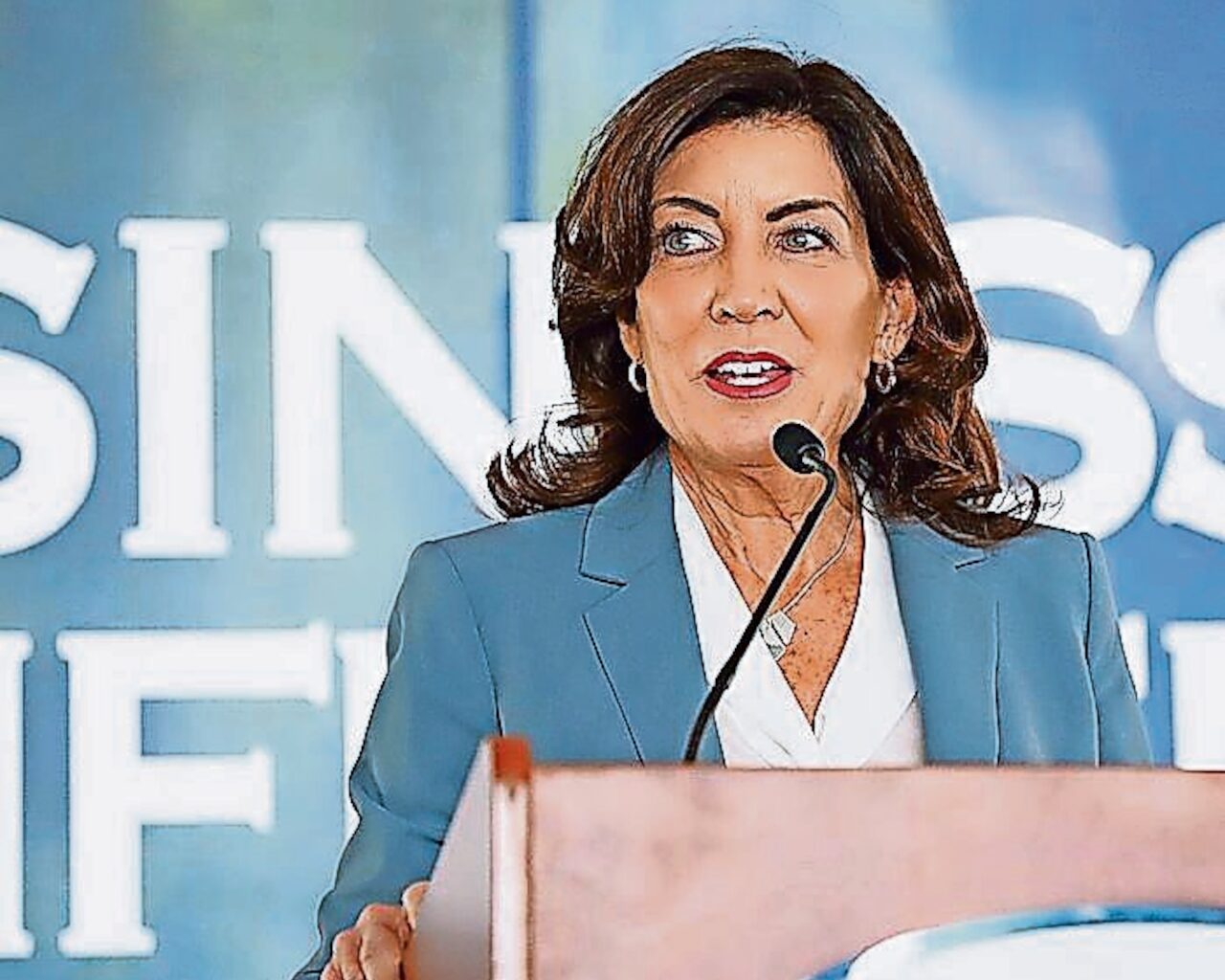By Colin Kinniburgh | New York Focus
This story originally appeared in New York Focus, a nonprofit news publication investigating power in New York. Sign up for their newsletter here.
New York is violating its climate law — and doesn’t get a pass because implementing the law is “complicated,” a judge found Friday.
The 2019 law, which remains one of the most ambitious in the country, gave the state Department of Environmental Conservation until the start of 2024 to issue regulations that would “ensure” New York meets its binding greenhouse gas emissions targets. More than a year and a half later, it has not — a fact that Ulster County Supreme Court Judge Julian Schreibman said was “undisputed” in the case.
Schreibman gave the DEC until February 6 to issue regulations that comply with the law, called the Climate Leadership and Community Protection Act.
“While DEC notes that it has taken other, commendable regulatory steps to reduce greenhouse gas emissions, it candidly concedes that the impact of those regulations would fall far short” of the targets set out in the law, which requires the state to cut emissions 40 percent from 1990 levels by 2030 and 85 percent by 2050, Schreibman wrote.
Climate groups brought the case in March after Governor Kathy Hochul slammed the brakes on what was expected to be her signature policy to implement the climate law: an emissions pricing program known as cap and invest. Internal emails reported by Politico show that DEC and the state energy authority NYSERDA had completed draft cap and invest rules at the beginning of this year, before Hochul’s abrupt about-face.
The DEC argued in court that issuing the regulations was “infeasible” because it “would require imposing extraordinary and damaging costs upon New Yorkers.” (Hochul in August said much the same about her own reasons for shelving cap and invest.)
The judge dismissed that argument.
“It is undoubtedly true that the task placed before the DEC is very complicated indeed,” he wrote. “But as a legal argument, this is unavailing.”
Schreibman said there were two possible paths forward: Either the legislature can step in and change the law, or the DEC must act on it. He set his deadline in February, a month into the next legislative session, to give state lawmakers a chance to weigh in. If the legislature leaves the climate law intact, he said, he is “highly unlikely” to grant DEC an extension.
The ruling does not explicitly require the state to move ahead with cap and invest; the policy is not named in the climate law, and Schreibman said the content of the DEC’s regulations is not up to him. But the law does require the regulations to reflect the findings of its 2022 scoping plan, which envisioned cap and invest as its core measure to achieve the emissions targets. State agencies spent two years working on the rules to establish that program before Hochul put them on ice. It’s not yet clear whether DEC could find a substitute by February.
There is one more possible path: The DEC could appeal the decision, potentially leading the case to drag on for months longer, if not more.
In a statement provided to New York Focus after publication, the DEC said simply that it was reviewing the decision.
Hochul went further. Reacting to the ruling on Friday evening, she said she would do what was necessary to keep New York’s energy supply reliable and affordable and keep the state attractive to business.
“New York has been, and will continue to be, a leader in climate action, but the judge’s decision fails to factor in the realities of today that include a federal government hostile to clean energy projects, the continuing impacts of post-COVID high inflation, and potential energy shortages expected downstate as soon as next year,” Hochul said, in an emailed statement. “We plan to review all our options, including working with the Legislature to modify the CLCPA and appeal, in order to protect New Yorkers from higher costs.”
If you purchase a product or register for an account through a link on our site, we may receive compensation. By using this site, you consent to our User Agreement and agree that your clicks, interactions, and personal information may be collected, recorded, and/or stored by us and social media and other third-party partners in accordance with our Privacy Policy.

